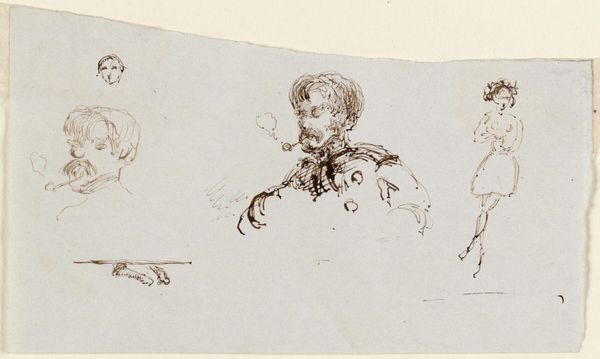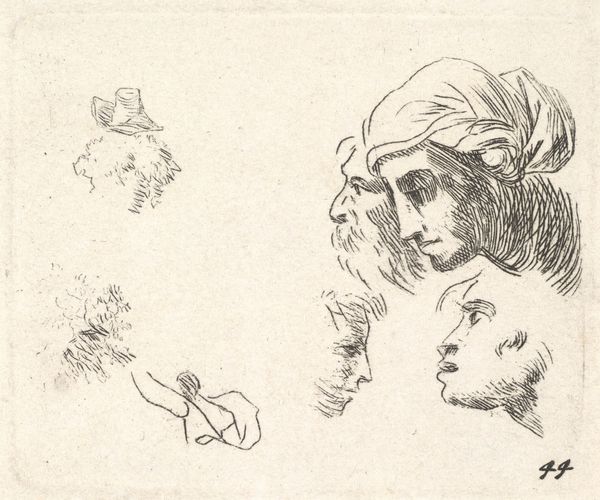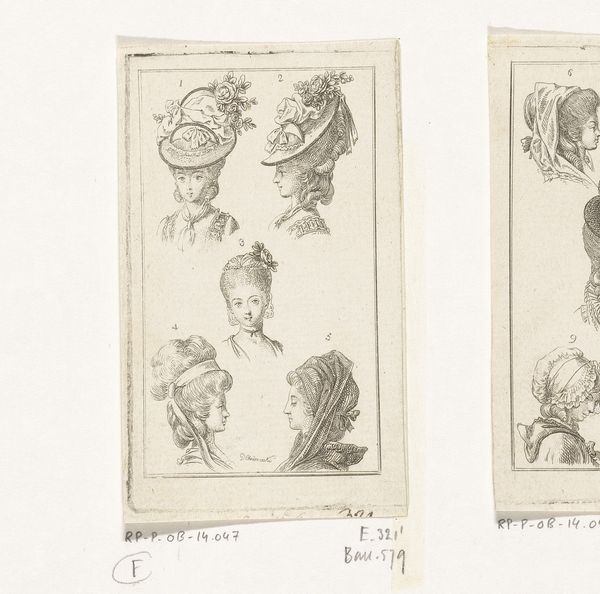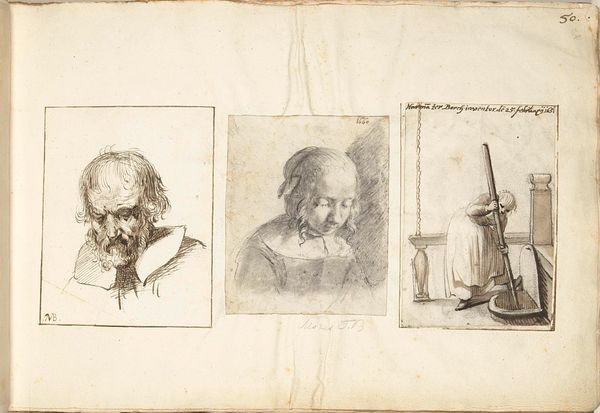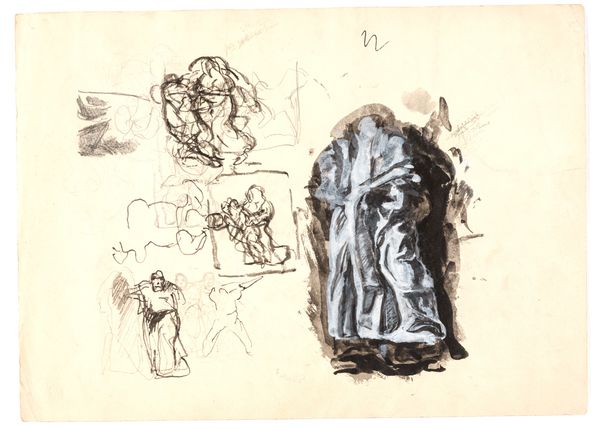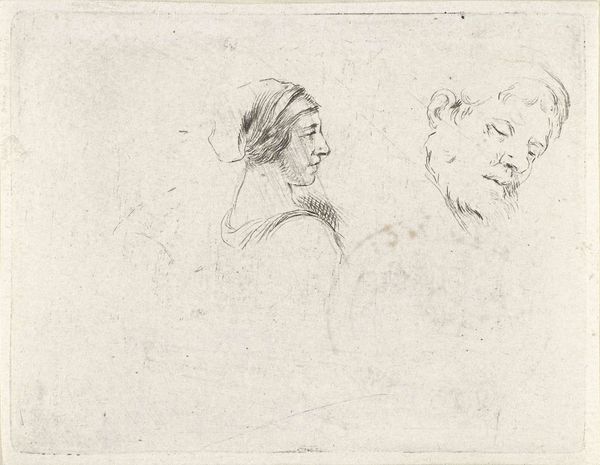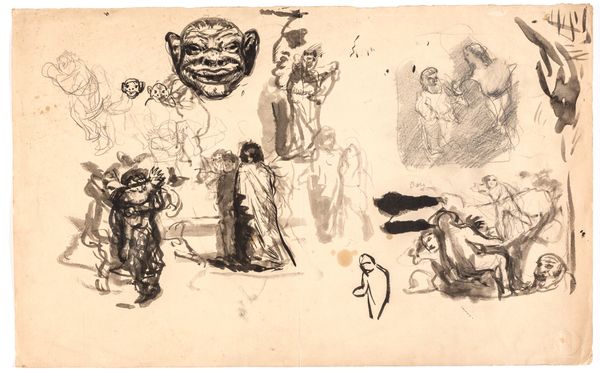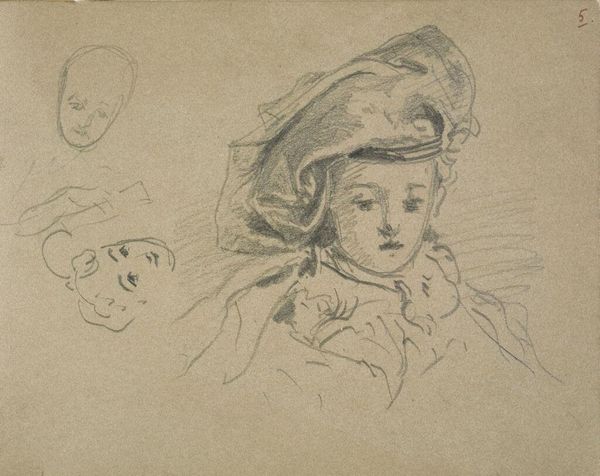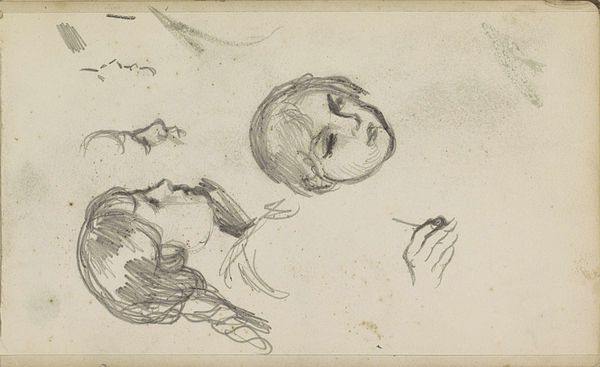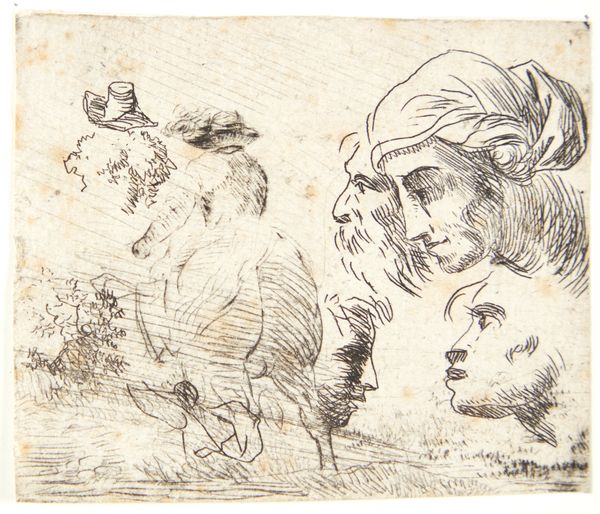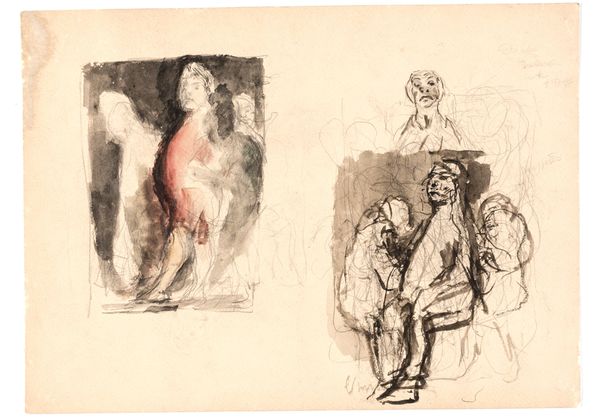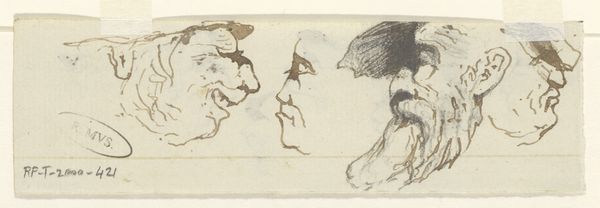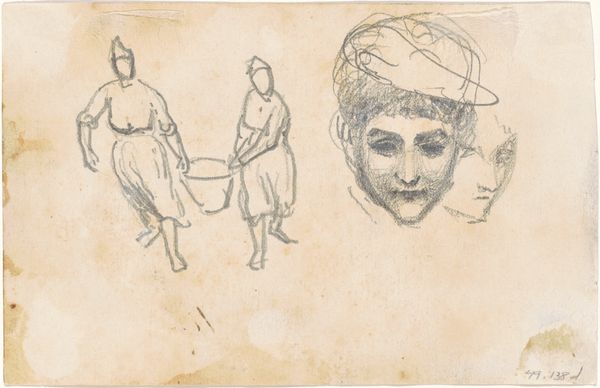
drawing, print, paper, ink, pen
#
portrait
#
drawing
#
light pencil work
#
quirky sketch
# print
#
pen sketch
#
pencil sketch
#
figuration
#
paper
#
personal sketchbook
#
ink
#
idea generation sketch
#
pen-ink sketch
#
sketchbook drawing
#
pen
#
academic-art
#
sketchbook art
#
fantasy sketch
Dimensions: 133 mm (height) x 204 mm (width) (bladmaal)
Editor: This is "Studieblad med to hoveder og en skriftprøve" from the 1850s by Wilhelm Marstrand. It's a pen and ink drawing on paper housed at the SMK. The composition strikes me as quite informal, like a page ripped right out of the artist’s sketchbook. What grabs your attention when you look at it? Curator: The very nature of it being a study sheet. It's a record of labor. What kind of pen did Marstrand use? Was this expensive paper, or something readily available? What level of artisanal skill was needed to make it, in comparison to mass printing capabilities available in the 1850s? The handwriting next to the portraits almost mocks the kind of penmanship expected from an educated elite during the 19th century. It’s interesting to consider how materials and skill meet in this object. Editor: So, you're looking beyond just the artistic skill depicted in the portraits to consider the social and economic context of producing the work itself. I see what you mean about the handwriting; it doesn’t quite seem elegant. Curator: Precisely. And this challenges the concept of art as purely intellectual or aesthetic pursuit. Was this created as an underdrawing for a history painting commissioned by a wealthy patron, or was this a way to occupy one's time in the print shop? If mass production had been more prominent in the artworld in the 1850s, this work could have come off as amateurish to the classically-trained artists of Marstrand's generation. This type of mark-making shows the tension between the status of an artistic "genius" and the democratization of images through print and drawings like these. Editor: That is something I've not really thought about: How artists navigate new techniques and materials relative to their current skills. I like thinking about artistic labor and democratized art and how those two ideas mingle! Curator: Indeed. And by investigating those processes, we start questioning the power structures at play in the art world.
Comments
No comments
Be the first to comment and join the conversation on the ultimate creative platform.
